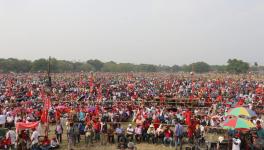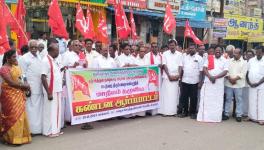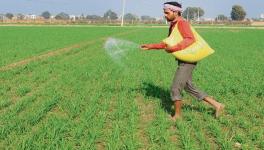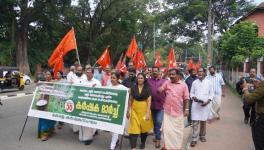New Burden for Maharashtra Farmers: Groundwater Cess
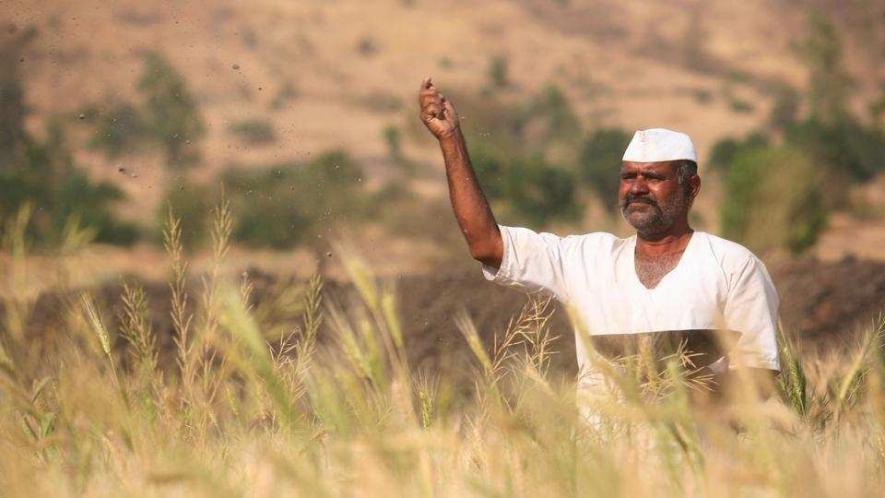
Maharashtra government, desperate to curb over extraction of water from the deep wells, has proposed to levy a cess on the use of deep wells. The cess will cover in its ambit both agricultural and industrial use.
The move was initially proposed in July and suggestions and objections to the cess were invited until the first of September. Currently the state is grappling with some of the highest levels of water depletion noted in decades. The startling findings from state’s own survey by the Groundwater Survey and Development Agency(GSDA), conducted this year showed a 71 per cent depletion in water levels. The survey compared the ground water level in 3,920 observation wells in the state in March with average water level in the last five years. Groundwater depletion was found to be highest in the arid Vidarbha and Marathwada regions.
The latest move by the government is deemed to crumble poor farmers in the region. Maharashtra Water Resources Regulatory Authority (MWRRA) is already collecting a cess on extraction from deep wells in notified and non-notified areas. Under the proposed changes the tax levied in notified areas will see a four times hike from what it currently is, meanwhile in non notified areas the cess will be twice the current MWRRA cess. The State Department of water supply and sanitation will oversee implementation of the Act and the tax will be collected by State Revenue Department in consultation with State groundwater authority.
A plea for the cess was started by Suresh Kumar Dhokha, who hoped to limit the illegal extraction of groundwater. The move currently being projected as progressive one has not left many happy since those worst affected by the cess- the farmers- are not given any voice in the discourse. Speaking to NewsClick, Vijoo Krishnan, Joint Secretary of the All India Kisan Sabha(AIKS) said, “Nobody listens to the voices of the farmers, no advertisements were put out in the public domain in either Marathi or Hindi, we have been raising this issue for a while and the government had a consultation many years ago.”
Explaining the damages the farmers will have to face due to the proposed cess, Prahlad from Shetkari Sanghatana in Maharashtra stated that, “If the move is implemented we will be on the roads.” The farmers in the state come under the worst hit areas of India’s agrarian distress. He reiterated that these farmers are not given fair prices for their produce under the flawed evaluation of the Minimum Support Price (MSP) by the government. in addition to this, the government is adding to the list of piling expenses for the poor farmers.
He added that, “Water is the most basic need for agricultural production, charging us hefty taxes for it is unfair and has left us agitated.” Previously, the government had also indicated that farmers should use less water during cultivation. Pointing to the privileges the leaders enjoy he added, “The makers of the policy are not in touch with the ground realities and they hope to benefit only the powerful.”
Water conservation activists in the state have also raised pertinent questions, slamming the government’s move many believe that the mere imposition of the cess will not produce any results until the drilling operations by the government are checked. Currently, the state does not have any mechanism to restrict the movement of drilling machines. Many have alleged that drilling operators enjoy political patronage in smaller areas as the unscrupulous drilling of the borewells goes unchecked. Previously, the government had initiated the ongoing Taluka level Jalyukt Shivar Abhiyan, the policy which was launched in 2014, with a vision of bringing the water conservation schemes under one umbrella. The project which hoped to make the state drought free by 2019 is also deemed to be a failure on the same lines that it ended up benefiting the bigger farmers. Pointing to the existing disparity over the control of the resources in the state, Vijoo Krishnan added, that the cess will only further this inequality. “It will lead to added pressure on the tenants who don't own their own land.” The issue then comes a pertinent question of unequal control of the resources of water and its distribution.
The proposed set of new rules that will be governing local bodies, industries and commercial installations will leave the farmers as its most marginalised target. The spending on the availability of water resources is also the question of the basic survival of an already surpassed group. Prahlad added, “The rules are put in place because the state thinks we are wasting water? But they don’t realise that the move may end up wasting all of our efforts put in to get a harvest.” The vision of imposition of the cess seems unilateral with only over extraction kept in mind, the interests of the farmers were not just sidelined but completely overlooked by the state. In hopes of making the state drought free, the Maharashtra government seems to have forgotten its promises of making the state free of agrarian distress.
The farmers in the state are preparing to make their concerns noticed with smaller protests in the state and a massive long march scheduled in November, the farmers will also raise the issue during the farmer-worker collective agitation on the 5th of September.
Get the latest reports & analysis with people's perspective on Protests, movements & deep analytical videos, discussions of the current affairs in your Telegram app. Subscribe to NewsClick's Telegram channel & get Real-Time updates on stories, as they get published on our website.












